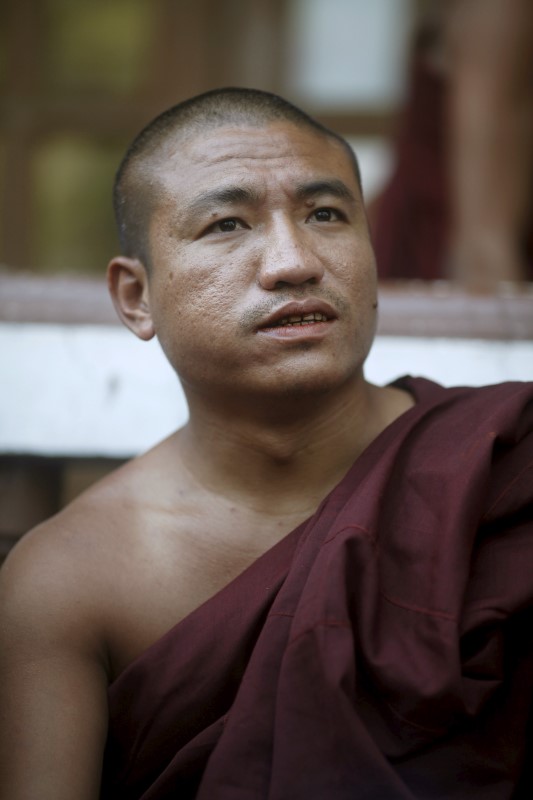By Aung Hla Tun
YANGON (Reuters) - A Myanmar court laid additional charges against a former monk and leader of the 2007 "Saffron Revolution" anti-junta uprising on Tuesday, accusing him of trespass and "mischief" committed four years ago.
Nyi Nyi Lwin, better known as Gambira, was arrested in January for illegally entering Myanmar from neighbouring Thailand.
The new charges relate to the reopening of monasteries that were sealed off after the monk-led protests. The alleged violations took place in 2012, after Gambira's release from prison where he had served time for his involvement in the demonstrations.
"Gambira force-opened the gates of three monasteries in Yangon, which were sealed off by the military in the crackdown on the protests, since the activist monks couldn't find anywhere to live after their release in the amnesty in 2012," said Gambira's lawyer, Robert San Aung.
The charges were laid days before he was about to be released from prison, where he has been serving time for allegedly crossing the Thai-Burma border without an official visa.
He has now been moved to Yangon's notorious Insein prison from Mandalay to face the new charges.
The fact that a high-profile political prisoner is moved around the country and charged for seemingly minor offences committed years ago shows democratic reforms in Myanmar under Aung San Suu Kyi's leadership are still in their early stages, as many junta-era institutions, mechanisms and laws remain unchanged.
"He was due to be freed on July 1, but the authorities seem afraid of him and don't want to let him out," said Robert San Aung.
The government cracked down harshly on the 2007 demonstrations, opening fire on protesters and sweeping up those who took part. At least 31 people were killed by security forces and thousands arrested, according to the United Nations.
Gambira was freed from prison during a 2012 general amnesty, a year after the junta handed power to a semi-civilian government, following 49 years of direct rule of the Southeast Asian nation.
Since his release, he has divided his time between Myanmar and Thailand, but Myanmar authorities have re-arrested him several times in what rights groups have described as continued harassment for his criticism of the previous military-backed government.

"It just shows things still remain as bad as they were under the former regime," political analyst Yan Myo Thein told Reuters. "They always find some pretext whenever they don't want to free a prominent politician or an activist."